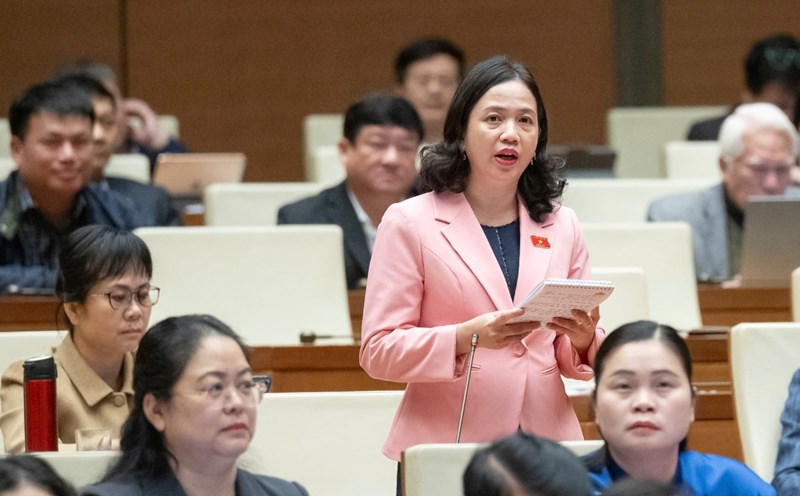"Disadvantage for workers"
In the draft Law on Employment (amended), at Point b Clause 1 Article 64 stipulates that "employees who are dismissed under labor laws or disciplined or forced to quit under civil servant laws are not entitled to unemployment benefits".
Commenting on the provisions in this draft, Mr. Dong Trong Khanh, a worker in Thanh Hoa, said that this should only be applied to cases of dismissal for reasons such as theft of company property; in reality, there may be unreasonable and unjustified reasons for firing employees.
"In such a case, it will be disadvantageous for the workers," said Mr. Khanh.
In addition, according to Mr. Khanh, workers have paid unemployment insurance, so when they are unemployed and encounter many difficulties, they need to receive the portion they have paid.
"There are cases where workers have participated in unemployment insurance for 10 years, but for some reason they are fired, losing this period of payment is very disadvantageous," Mr. Khanh expressed.
Speaking to reporters, a union official expressed disagreement with this regulation. "In my opinion, this regulation is unreasonable. Unemployment insurance premiums paid by employees or businesses are still the rights of employees, but they are not entitled to receive it, which is inappropriate," said this union official.
According to the union official, employees who are disciplined by dismissal according to the Labor Code cannot be "dragged" into receiving or not receiving unemployment benefits.
"Because whether or not they receive benefits depends on the time the employee has participated in unemployment insurance. If they are not allowed to receive unemployment benefits, then the entire period of participation in unemployment insurance before will not be counted for the employee?", the union official expressed.
Opinions of National Assembly delegates
This content was also discussed by many National Assembly deputies at the 8th Session of the 15th National Assembly.
Delegate Nguyen Hoang Bao Tran (Binh Duong Delegation) said that this regulation would be disadvantageous to workers because in reality, there are many cases where workers pay full unemployment insurance but cannot enjoy it due to force majeure, have to unilaterally terminate the contract without being able to give notice as prescribed, or sometimes workers violate discipline not entirely due to personal fault but due to pressure or many conditions, unfair work leading to an imbalance in benefits for workers.
Therefore, delegates recommended that it is necessary to consider and regulate the conditions for unemployment insurance benefits to ensure the principle of contribution and benefit in order to balance and harmonize the rights of workers when unemployed, promptly protecting the rights of workers in cases of force majeure.
In addition, employees must prove legitimate reasons for unilaterally terminating the contract or violating regulations; apply inspection and verification measures instead of complete prohibition, and unemployment benefits should only be excluded in cases of serious violations causing great damage to the enterprise.
Delegate Dang Thi Bao Trinh (Quang Nam Delegation) proposed to study and develop this regulation in principle to ensure the rights of the above subjects, in the direction of allowing them to receive unemployment benefits when there is sufficient evidence of being refused a job due to being fired or forced to quit from the previous enterprise or unit.
"In reality, it is very difficult for laid-off workers to find new jobs because new employers consider dismissal as a bad record to refuse to hire workers," the delegate said.
Delegate Nguyen Thi Ha (Bac Ninh) also said that this regulation has invisibly deprived the rights of workers who have fully fulfilled their obligations to contribute to the unemployment insurance fund and will go against the basic contribution-benefit principle of social insurance.
"The right to unemployment insurance is a guarantee when workers lose their jobs, helping them stabilize their lives during the transition to a new job. If this regulation is not adjusted, a segment of workers will suffer, especially those who have paid full insurance but will not enjoy essential benefits when they encounter difficulties," said the delegate.











